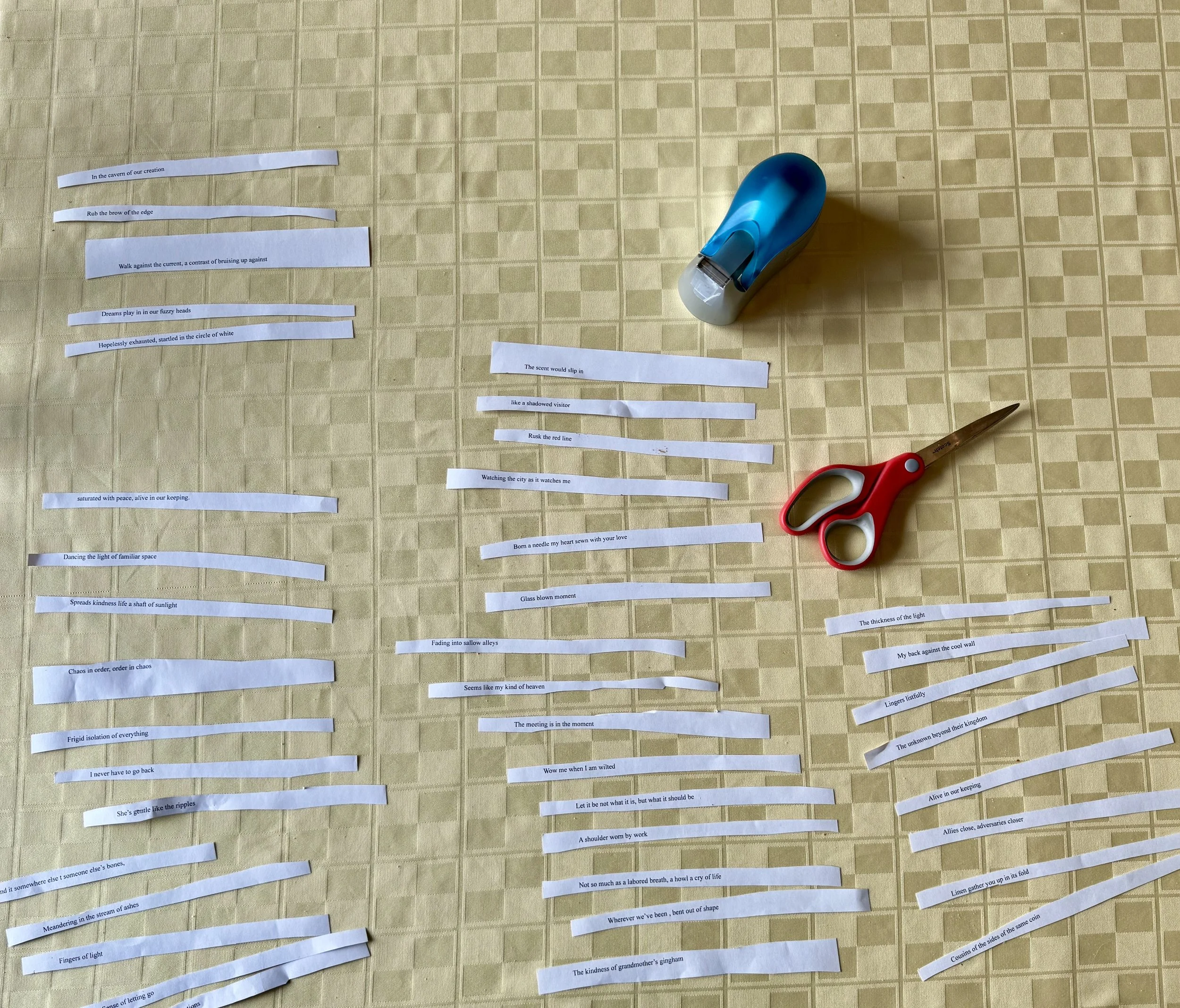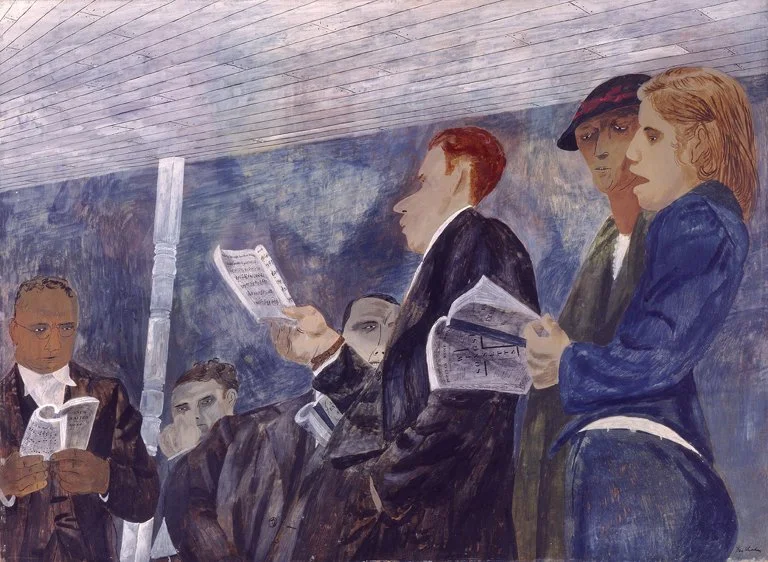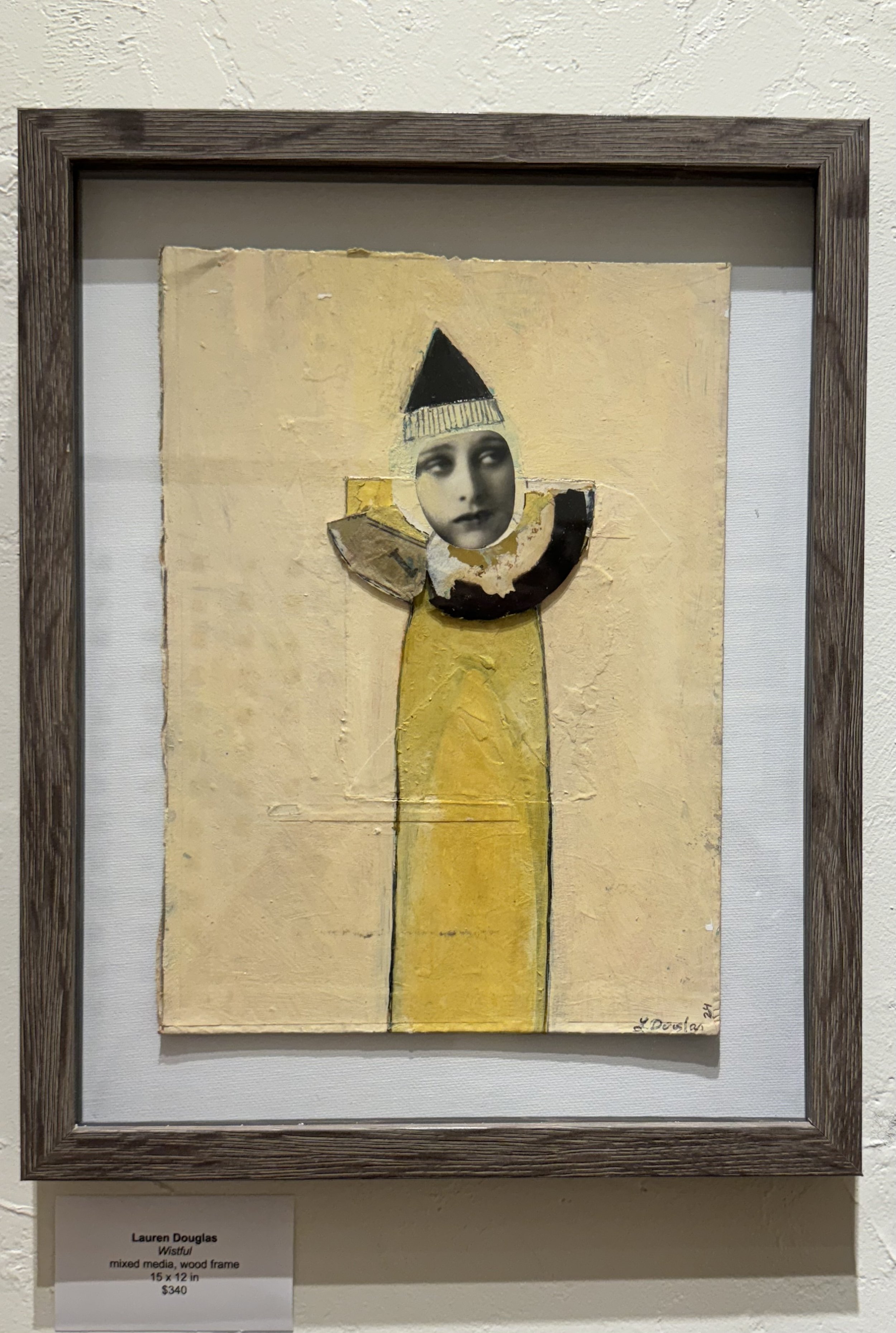WISTFUL
After “Wistful” Mixed Media by Lauren Douglas. (Art Speaks, Woodwalk Gallery 06/28/24)
There is yearning in her eyes
with an aura of melancholy.
It began at age ten
fidgeting with her shadow.
She would not step on it,
something bad might happen.
To be safe, she counted
steps forward and backward,
but not in the shadow.
Even the air hurt to breathe,
Something didn’t feel right.
Do it again. Count the steps.
Hold in breath,
do not breathe the bad air.
Shower away the germs
until the water runs cold.
She was born a boy
so the doctor said
but she thinks like a girl,
hormones criss-crossed
somewhere, maybe in the womb?
She’s grown into her real self.
She yearns, the time is almost here
to glow up into that feeling when ….
She walks into light
wears the yellow of sunshine,
re-birthed into a wish fulfilled.
She looks forward
worry lines relax.
Lips calm, with a slight upturn
poised to smile,
all girl now, no one can tell.
She never has to go back.
Revised version 7/23/24: I changed to 3rd person. I took out “telling” lines—at least I hope I did. I struggle with that. added more info about the transition. I tried one long block of text, then settled on couplets. Couplets add pauses, I think. Do the couplets make it too long on the page?
Glow-up
After “Wistful” Mixed Media by Lauren Douglas. (Art Speaks, Woodwalk Gallery 06/28/24)
It began at age ten
fidgeting with your shadow.
You would not step on it,
something bad might happen.
You counted steps forward
and backward
but not in the shadow.
Even the air hurt to breathe.
Something didn’t feel right.
Do it again. Count the steps.
Hold in breath
do not breathe the bad.
Shower it away
until the water runs cold.
You were born a boy
but think like a girl.
Hormones criss-crossed
maybe in the womb?
Too much of one
not enough of the other?
The glacial pace of transition
is the gender of rightness.
Now glow up into light
wear the yellow of sunshine, smile!
Certain as the cycle of seasons
you have no second thoughts.
Be safe, my child
no one can tell
You never have to go back.
All girl now.
REVISION 2
Glow-Up
After “Wistful” Mixed Media by Lauren Douglas. (Woodwalk Gallery, Egg Harbor, 06/28/24)
It begins at age ten,
fidgeting with your shadow.
You won’t step on it,
something bad might happen.
You count steps forward
and backward
but not in the shadow.
Even the air hurts to breathe.
Something doesn’t feel right.
Do it again. Count the steps.
You hold in your breath,
to not breathe in the bad.
Shower it away
until the water runs cold.
You are born a boy
but think like a girl.
Have hormones crisscrossed –
maybe in the womb?
Too much of one
not enough of the other?
The glacial pace of transition
is the gender of rightness.
Now glow-up into light.
You are your radiance. Smile.
Certain as the cycle of seasons
you have no second thoughts.
Be safe, my child,
no one can tell.
You never have to go back.
All girl now.




